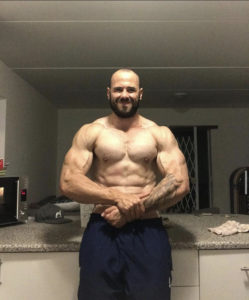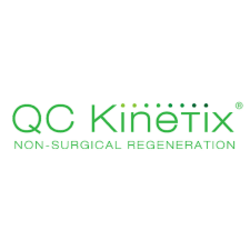Depression is a silent thief that can sneak up on us unexpectedly. One minute you can be living life to the fullest with joy and the next you’re curled up in bed unable to get out. It sucks. There’s no other word for it and no other way to describe it, it simply sucks.
But although it sucks and you may not be able to see a way out of the tunnel just yet, there are some strategies that can help us when the blues come. We take a look at the top supplements that can help ease depression and support our mental health.
Rhodiola Rosea
Also known by the name Rhodiola, Golden root or Arctic root, Rhodiola is a herb found in Northern Europe and Asia and is used as an ‘adaptogen’ meaning it can help our bodies adapt to stressors.
Studies have shown that when taken in supplemental form for a period of 6-12 weeks, it can help reduce depressive symptoms and improve our mood as well as improving our stress response (1).
In our brains we have something called a hypothalamic-pituitary-adrenocortical axis also known as the HPA axis. Our HPA axis is a major system in our bodies and regulates many bodily processes such as digestion, immune system, energy storage as well as mood. Research has suggested that when our HPA axis is overactive it can be associated with symptoms of depression.
Rhodiola can exert antidepressant effects by enhancing the communication between our nerve cells and reducing overactivity of the hypothalamic-pituitary-adrenocortical (HPA) axis (2).
Side effects of taking Rhodiola include: insomnia, increased blood pressure, anxiety, headaches and agitation. It is not recommended for pregnant women or women who are breastfeeding. If you have any medical conditions, it may be a good idea to check with your healthcare provider first, if this supplement is a good choice for you (1).
Vitamin D
With the Covid pandemic, I think we are all familiar with taking Vitamin D to boost our immune system. What’s cool with Vitamin D is that it can also help with depression by regulating our mood and protecting our nerve cells.
Research has found that individuals suffering from depression are likely to be low or deficient in Vitamin D. When these individuals were given Vitamin D through a shot, their depression symptoms reportedly improved. Although this is promising, more research is needed to confirm the findings (3).
Vitamin B
Vitamin B is not one but a family of B vitamins which includes folate, vitamin B12 and B6.
The B vitamins are crucial for the production and regulating of our neurotransmitters such as Serotonin, GABA and Dopamine (4).
Research has found that a deficiency in the B vitamins specifically folate, Vitamin B6 and B12 has been linked to depression and that when individuals deficient in these vitamins were treated with a supplemental shot of the vitamins, their depression symptoms reportedly improved.
Another review found that Vitamin B12, could delay the onset of depression as well as improve the side effects of antidepressants (5).
Zinc
Another popular supplement used to help boost our immune systems to prevent Covid, Zinc has other properties such as protecting our bodies against oxidative damage and has anti-inflammatory properties.
A Zinc deficiency is linked to an increased risk of depression and depression symptoms. An analysis found that zinc levels were lower in individuals with depression. With a greater deficiency of zinc leading to great depressive symptoms (6).
Reviews have found when individuals took zinc supplements along with their antidepressants, depressive symptoms improved (7).
N-Acetylcysteine
NAC for anxiety is a common use of NAC but did you know that NAC can also be used for depression?
Also known as NAC, NAC is another useful supplement used to ease depression. NAC is a precursor to the L-cysteine and glutathione amino acids. Glutathione is a powerful antioxidant that helps protect our bodies from oxidative damage.
Research has shown that individuals with depression may have higher levels of inflammatory markers such as C-reactive protein, interleukin 6 and tumor necrosis factor-alpha. Taking NAC will help improve these markers and help ease the symptoms of depression.
NAC can also improve the regulation of neurotransmitters such as dopamine and glutamate and can help with other psychiatric disorders such as bipolar disorder and schizophrenia.
A study conducted in 2016 showed that NAC significantly reduced depressive symptoms and improved functioning in individuals with depression.
NAC is safe and well tolerated, and more studies are being conducted on the optimal dosage however 2-2.4 grams per day is thought to help improve depression (8).
5-HTP
5-HTP also known as 5-hydroxytryptophan is a precursor to Serotonin, a neurotransmitter. Serotonin is an important neurotransmitter that can help regulate our mood and behavior as well as appetite and pain threshold.
5-HTP is not found in the foods we eat and although its precursor tryptophan is, eating foods rich in tryptophan does not significantly increase 5-HTP. 5-HTP is found in the seeds of an African plant called Griffonia simplicifolia.
By taking 5-HTP in the form of a supplement, it can help boost our 5-HTP levels therefore increasing our Serotonin levels. Research has found that taking 5-HTP in supplemental form can help improve symptoms of depression (9).
How do I choose which one?
With so many supplements out there, it may be daunting to choose one. To help you, it may be a good idea to see your healthcare provider.
This way they can assess you, run blood tests to check your vitamin D, vitamin B and zinc levels can help determine whether there is a deficiency and whether it is contributing to your depression symptoms.
This will help your provider treat you more effectively and can help you decide which supplement will support you best.
Take Home Message
Depression may feel like a bottomless pit of despair but there are hopeful supportive treatments in terms of supplements that can help support you.
If you are suffering from depression it may be wise to have the support of a therapist and healthcare provider, this way you aren’t alone and can help support you through your mental health journey.
Sources
- https://www.mhanational.org/rhodiola-rosea
- https://www.ncbi.nlm.nih.gov/pmc/articles/PMC4297663/
- https://www.ncbi.nlm.nih.gov/pmc/articles/PMC6970300/
- https://www.ncbi.nlm.nih.gov/pmc/articles/PMC4772032/
- https://www.ncbi.nlm.nih.gov/pmc/articles/PMC7688056/
- https://pubmed.ncbi.nlm.nih.gov/23806573/
- https://pubmed.ncbi.nlm.nih.gov/21798601/
- https://www.ncbi.nlm.nih.gov/pmc/articles/PMC6217900/
- https://www.mountsinai.org/health-library/supplement/5-hydroxytryptophan-5-htp








